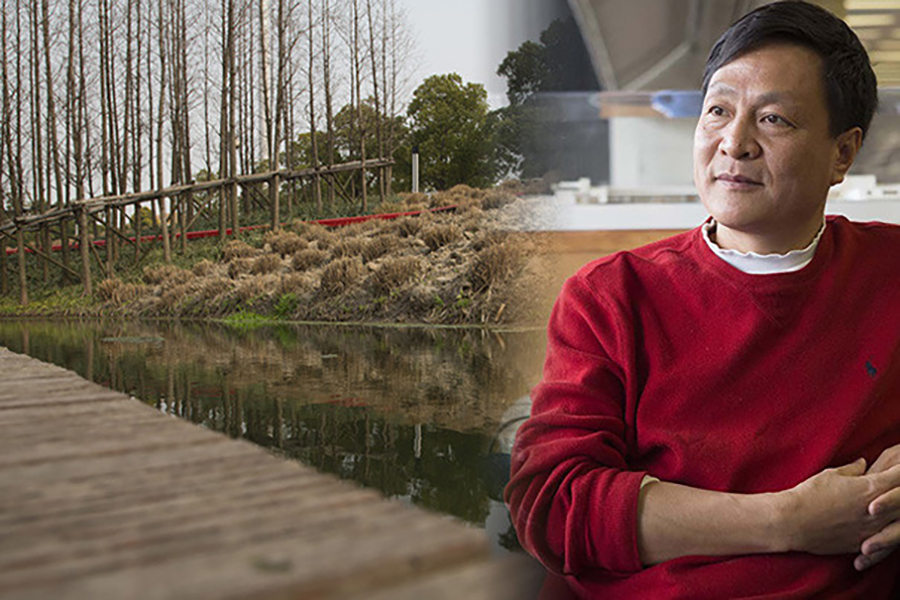Kongjian Yu is a Chinese architect who defies the norms imposed on him as an architect. He promotes environmental thinking by building contemporary eco structures for urban developments while preserving cultural integrity. Here, he shares his journey.
“I had a shock! I saw how rivers were being polluted, ancient cities were being torn down, trees were being felled. All this seemed so wrong to me. I started writing articles and made as much noise as I could because I wanted to expose the flaws within Chinese policy; to the extent that policy was also disrupting values and people’s behavior. The response I got was anger from my local community, and even from other professionals and former teachers. They said I was betraying Chinese culture for having criticized tradition and culture. “You are a traitor to our whole culture,” they said to my face.
You have to be brave to be a good leader. I was born a peasant, and my family became landlords. As such, I was classified as “the enemy” while growing up in China. I suffered a lot financially, and to survive, I had to learn to stand up for myself.
I was a critical thinker and earned a Harvard degree, which brought with it new ideas. At first, I was respected in China because of my success in the United States and was invited to speak at conferences. Articles were even based on my ideas. But then people began realizing that I had different opinions, ones that went against the status quo. They started to call me and wrote letters saying that they didn’t like what I was doing.
I kept going and started building projects to demonstrate my thinking about China’s ongoing destruction of the environment. Pollution has gotten so bad in China, and we are no longer in a position to deny our responsibility to fix this situation. If our government officials take the initiative, we can still become the leading nation when it comes to cleaning up the environment.
My first project was to clean up a shipyard in Thungsan, in the Gongdan district, in the late 1990s. I was lecturing a group of mayors about ecology, sustainability, and a new way to approach the problem when one of the mayors came up to me after my speech. He liked my ideas. The city had a piece of land, an old shipyard that was heavily polluted, filled with garbage, and which had gone bankrupt. He wanted to clean it all up, dismantle it, sell things off and build a park. He showed me a picture with a rusty railroad and rusty machinery.
I found this site valuable – an old industrial park is a memory for the city. I was able to convince the mayor not to tear it down and that the shipyard was part of our history. I took an ecological approach and told him that we could create a new cultural park, repurposing the existing buildings. It was both contemporary and controversial, and everyone was skeptical about how a rusty industrial park could be transformed into a flowering cultural park.
Ninety-nine percent of the architects fought me. They thought I should instead build it according to old Chinese traditions of gardening. But I stuck to my plan. Finally, we put on an exhibition for the public and found that 80 percent of the local people loved the idea.
The project was awarded the 2002 American Society Landscape Architects Award and recognized as the first contemporary project in China. Yet, it was not recognized or awarded anything in China!
I turned my efforts to convince the mayors instead of the architects. Mayors have more awareness around the global environmental crisis that we all find ourselves in. They also have a more hands-on approach and are more enthusiastic about new methods of urban planning.
Knowledge has made me brave. More and more young people are also becoming my friends and supporters. Within circles that were previously against me, young people now support me. It’s sometimes easier to convince young people, whereas the older generations are stuck in their ways. You ultimately need to rely on yourself, which is not the traditional Chinese way of living. As the farmer that I am, I have to tell the truth. It’s much easier to work together if you have the same values.
After 20 years of denial, my ecological thinking is finally becoming a reality. It’s not just a victory, but also a hope for the future. You always have to stick to what you know and believe in.




































